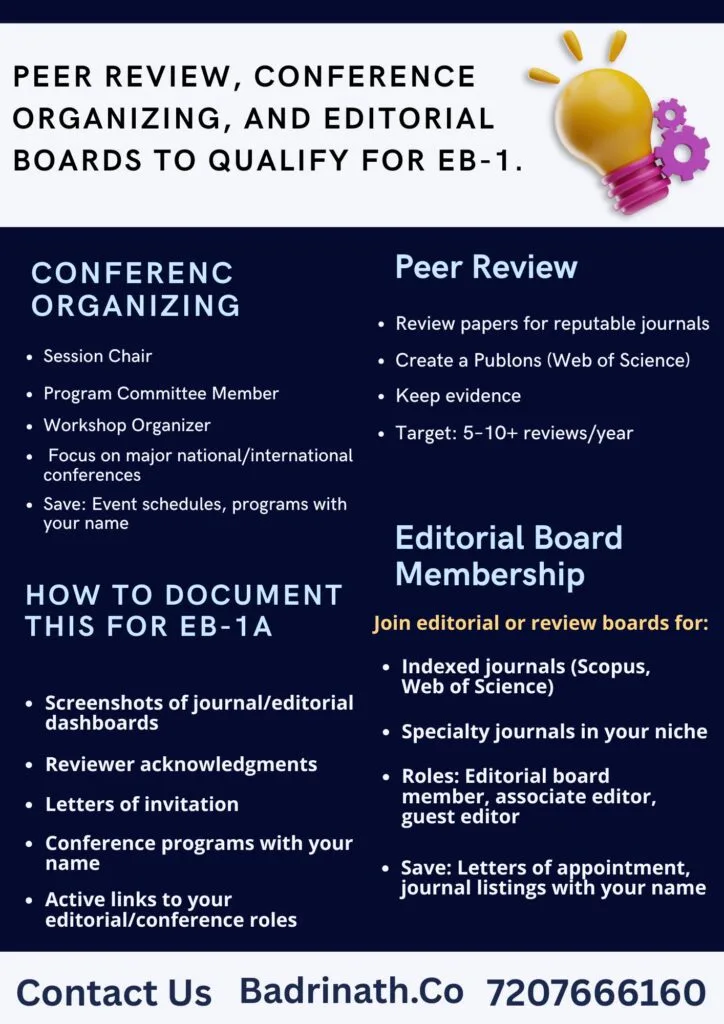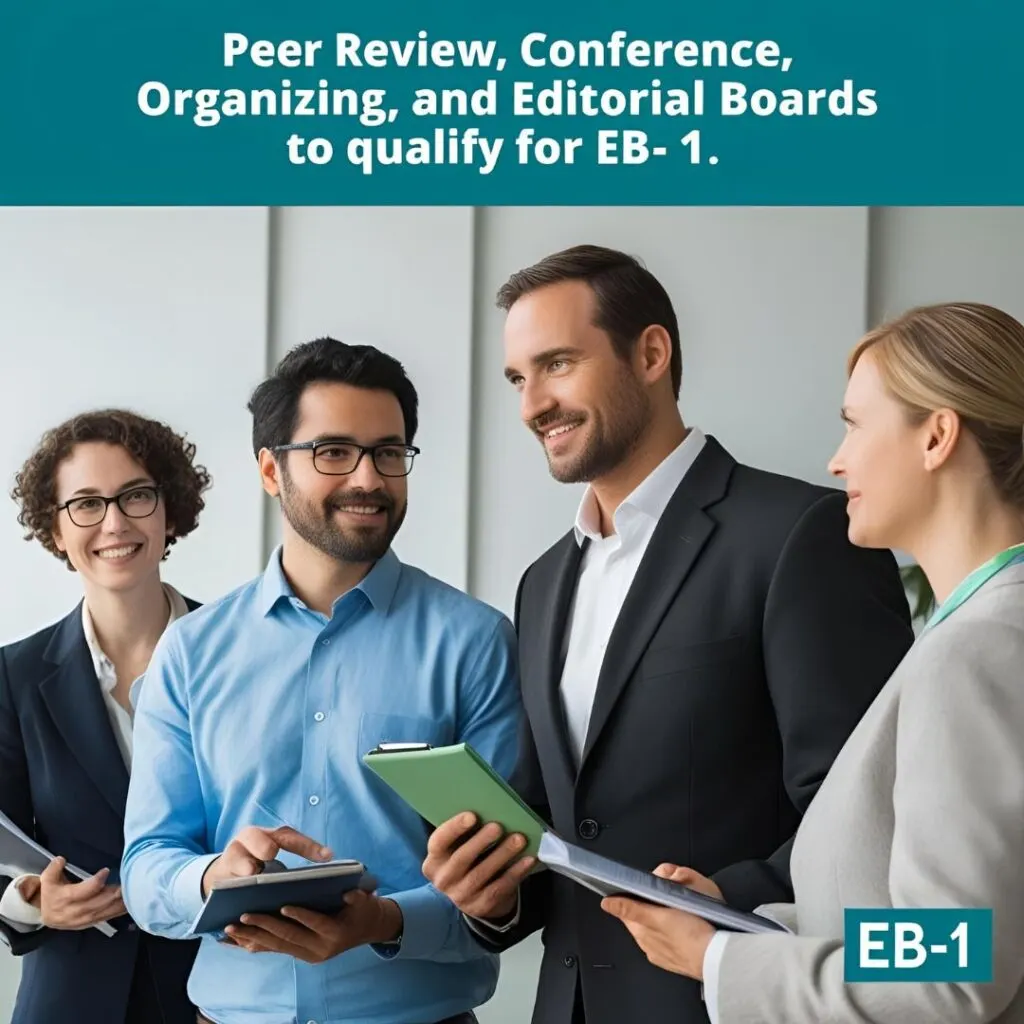Employment-Based First Preference (EB-1) category offers a pathway to permanent residency in the United States for individuals with extraordinary ability in their field. For academics, researchers, and professionals, demonstrating significant contributions to your field is crucial for a successful EB-1 petition. Among the most effective ways to establish your standing in your field are participating in peer review, organizing conferences, and serving on editorial boards.

The Value of Peer Review Experience
Serving as a peer reviewer for academic journals indicates recognition of your expertise by established publications in your field. This activity directly addresses the “judge of others” criterion that USCIS evaluates for Employment-Based First Preference (EB-1) petitions.
Documentation strategies:
- Maintain a comprehensive log of journals for which you’ve conducted reviews
- Save all review request emails from editors and journal submission systems
- Request formal acknowledgment letters from journals after completing reviews
- Screenshot reviewer acknowledgments from published papers
- Document if you are recognized as a “top reviewer” or received special recognition
Quality over quantity:
Focus on reviewing for prestigious journals with high impact factors rather than accumulating numerous reviews for lesser-known publications. USCIS officers look for evidence that your judgment is sought after by leading publications in your field.
Conference Organization as Evidence of Recognition
Organizing academic or professional conferences demonstrates your standing in your community of peers and shows that others rely on your expertise to advance the field.
Effective documentation:
- Preserve official invitation letters to serve on organizing committees
- Maintain copies of conference programs showing your name and role
- Collect testimonial letters from conference chairs describing your contributions
- Save emails documenting your selection process for speakers or abstracts
- Photograph yourself performing duties at these events when possible
Strategic engagement:
Prioritize involvement with major international conferences over local or regional events. Serving as a technical program committee member, session chair, or track organizer holds more weight than general committee membership.
Editorial Board Positions as Elite Recognition
Editorial board appointments represent one of the strongest evidence types for EB-1 petitions, as these positions are typically reserved for established experts with demonstrated judgment and influence.
Documentation approach:
- Obtain formal appointment letters from publishers or editors-in-chief
- Save screenshots of journal websites listing editorial board members
- Request reference letters from senior editors describing selection criteria
- Maintain records of editorial decision-making participation and also
- Document any special editorial roles or guest editor invitations
Maximizing impact:
Even a single editorial board position with a respected journal can significantly strengthen your petition. Focus on quality journals in your specific field rather than predatory or pay-to-publish outlets.
Integration Strategy for Your Employment-Based First Preference EB-1 Petition
When presenting these activities in your petition:
- Create a coherent narrative showing progression from reviewer to organizer to editor
- Contextualize the significance of each journal, conference, and board within your field
- Connect these service activities to your research expertise and overall contributions
- Obtain expert opinion letters specifically mentioning the selective nature of these roles
- Demonstrate how your participation influenced the field through these channels

Remember that these activities work best when presented alongside other evidence categories, such as original contributions, scholarly publications, and citations. However a well-rounded petition that shows recognition from multiple angles offers the strongest case for extraordinary ability classification.
Finally by systematically documenting and strategically pursuing these professional service opportunities, you create compelling evidence that meets multiple criteria for the Employment-Based First Preference (EB-1) extraordinary ability category.
Keywords:
- EB1 peer review evidence
- Employment-Based First Preference
- How to qualify for EB1 green card
- Editorial board role immigration
- Judge of others USCIS
- Green card for researchers
- EB-1A petition criteria
- Conference committee immigration
- Academic service EB1
Read More About the Topic
External Links
How Judging and Peer Review Strengthen Your EB‑1A Petition
EB1 Green Card Process: The Role of Publishing & Peer Reviewing
Internal Links
Peer Review Forum: Get Your Petition Documents Reviewed by Experienced Researchers
EB-1B Eligibility for Postdocs, Assistant Professors, and Senior Researchers







